The Week Ahead
March 5, 2023
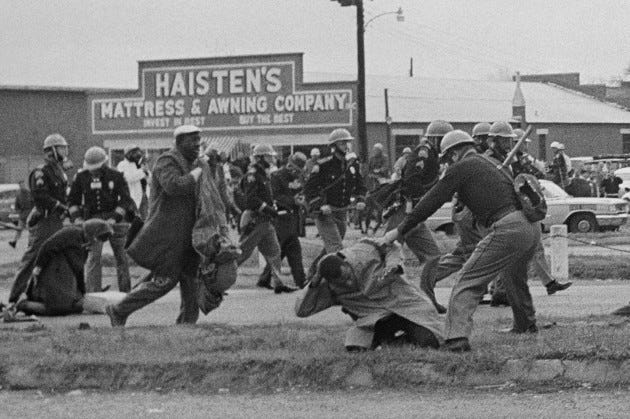
Today, Sunday, was the 58th anniversary of the march for voting rights in Selma, Alabama, that has come to be known as Bloody Sunday. Black Alabamians, many men dressed in suits and ties, and women in Sunday dresses, marched peacefully across the Edmund Pettus Bridge, which spans the Alabama River, only to be met by state troopers on horseback and foot who attacked them. They chased down those who tried to run away. Many people were left bloodied, and some were seriously injured. The bridge is just six blocks away from Brown Chapel AME Church, where the march had started.
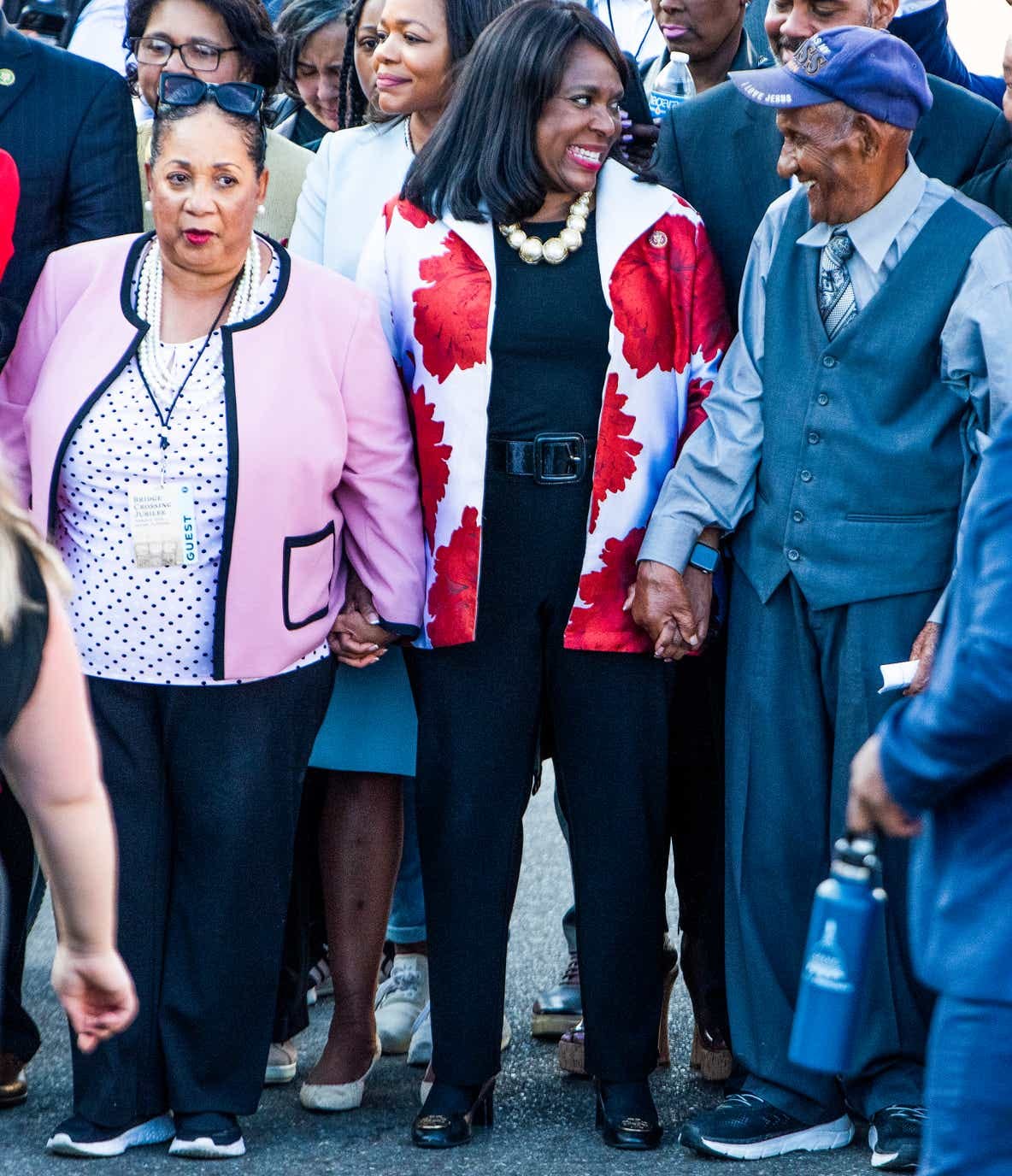
Every year, people gather in Selma to honor the marchers and to recommit to what John Lewis famously called “good trouble” in the pursuit of civil rights and freedom. This is the second year that Lewis, who passed away on July 17, 2020, has not been among those making the pilgrimage to Selma.
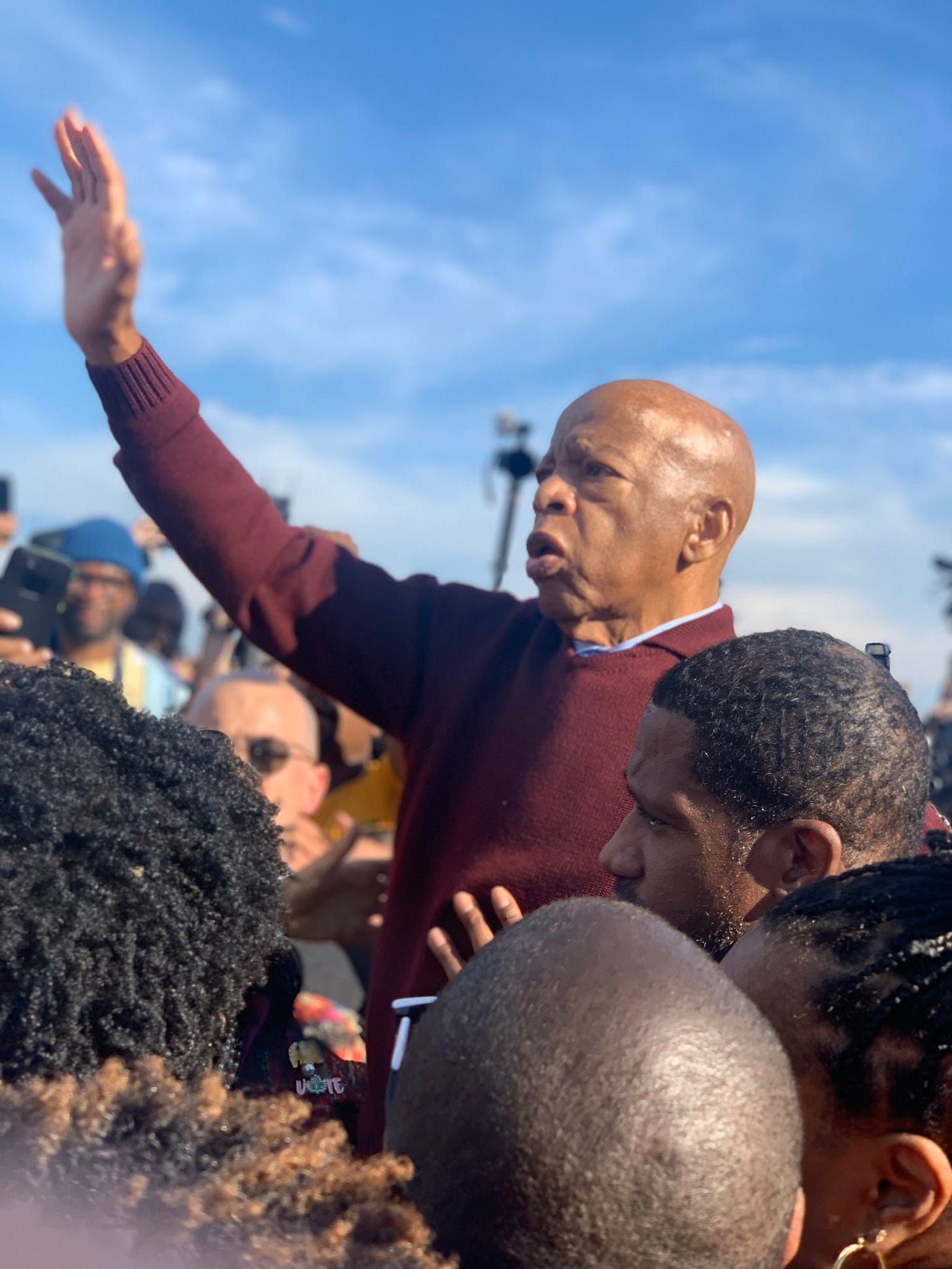
For many years he shepherded a bipartisan study group consisting of members of Congress and others, in order to better educate them about the history of the movement and the importance of voting rights. Who else could have convinced members of Congress to catch a flight to Montgomery, Ala., and then make the tedious hour-long drive to Selma, in order to celebrate the civil rights movement?
So when I saw this tweet this morning, it tugged at my heart. I really miss John Lewis too. The first time I met him, he enfolded me in a hug after we were introduced. There was something about his love and his certainty and his dedication that convinced you everything was going to work out. Of course, I met him in the early years of the Obama presidency, when there was the promise of change in the air, and we still believed the progress was linear and unstoppable. There was no sense that the Voting Rights Act and other key protections for Americans would be gutted over the next decade. That, in 2023, we would again be fighting for the right to vote. But even as protections for civil rights eroded, listening to Lewis could convince you we could find the wherewithal to do better.
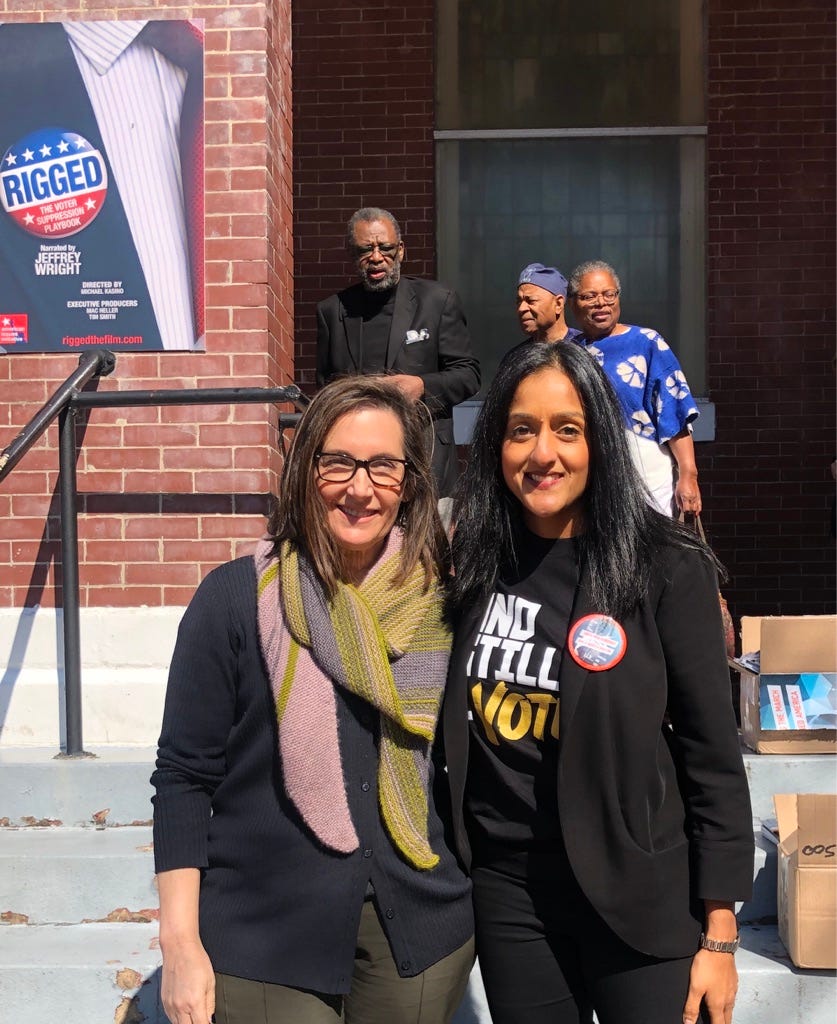
This is one of the few years I have not been in Selma to march across the bridge. In previous years, it has always been a moment of inspiration and a much-needed recharge for rundown batteries. It’s a time to be inspired by the courage of Black men and women who understood and continue to understand how important the right to vote is, how fundamental exercising it is to what makes us Americans. It’s a time to gather with friends, to hear the stories and sing the songs, and to recommit to the work that must be done in the year ahead.
Even without being in Selma in person, that’s a commitment we can all make. We need to, because by this time next year, we’ll be into the presidential primary season in an election cycle that will be the most important one of our lives. (Forgive me if you’ve heard me say this before: every next-election truly is the most important one of our lives. It’s not just something trite that politicians say. The next-election is the most important one because it’s the one that determines the course of our immediate future. And in this case, it’s the one that will determine whether Donald Trump, or someone else willing to ignore fundamental democratic values like he does, will take power.) We have work to do.
State legislatures continue to pass laws that make it more difficult for people to register, vote, and have their votes counted. In Georgia, if you give away food or water within 150 feet of the outer edge of a polling place building or within 25 feet of any voter in line, you can go to jail for up to one year and face a $1,000 fine. In Ohio, there’s one less day of early voting—the Monday before Election Day—in addition to a host of other new rules that make voting more complicated. The Supreme Court has made it far more difficult to use the Voting Rights Act, or what they’ve left of it, to protect the right to vote. And the Republican Party still refuses to call out Trump’s big lie, to expose it for what it is to their voters, because they are, apparently, more concerned with holding power than they are about making sure voters know the truth. So we have work to do.
The week ahead is the right time to start thinking about that work. We’ve talked about it in the past. It’s important to understand how important the power we wield as citizens and voters is, especially when we wield it together. There are opportunities at the local and the national level. People who live in states that seem to be irrevocably committed to candidates from one party or the other can work to support candidates in purple states. And there are local and state elections on par in importance with the national ones. Check out your local chapter of the League of Women Voters and get involved if you value public education. Want to have a better understanding of gerrymandering? Check out the website of the National Democratic Redistricting Committee, chaired by former Attorney General Eric Holder. Perhaps most importantly of all, you can consider running for office, even if the idea seems a little bit crazy and you’ve never done anything like that before. We are going to have to all stand up to get through 2024. But we know we can do it, because it was voters—not the courts, Congress, or prosecutors—who held Trump accountable in 2020 and removed him from office.
And of course we’ll do that work together here on Civil Discourse, brainstorming about how best to put our skills to use. “A republic if you can keep it,” Ben Franklin said. We’ve shown and will continue to show our dedication to keeping it. Good trouble.
We’re in this together,
Joyce


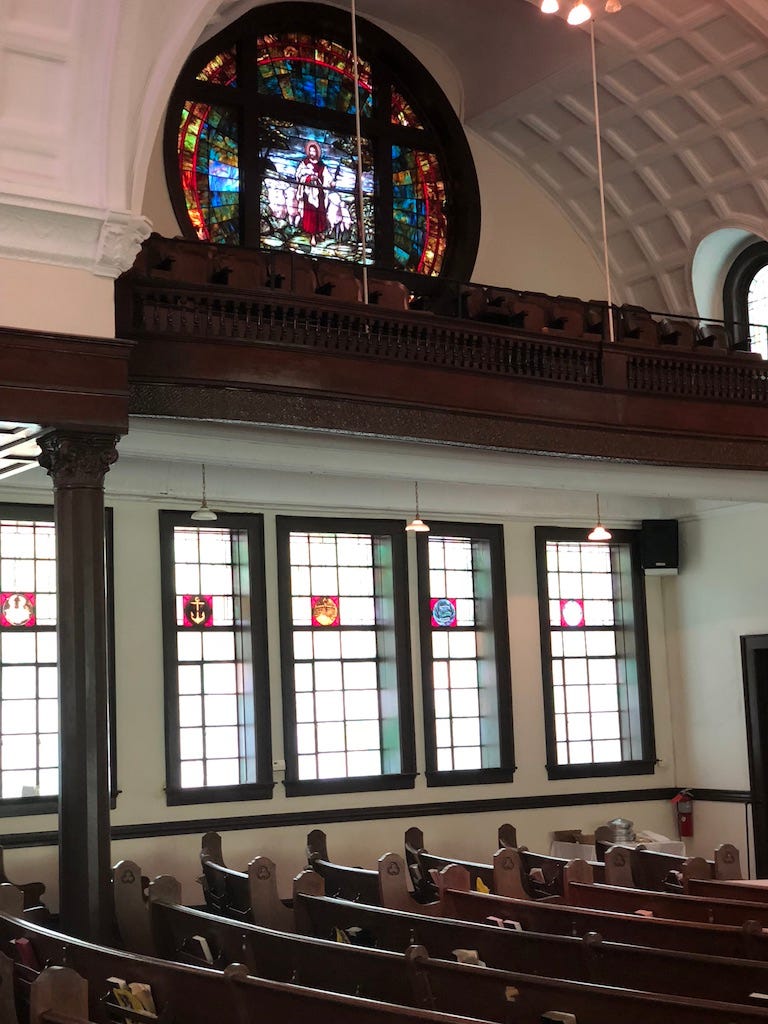



Terrible that we need to say this in 2023 but our lives depend on it. Thank you Joyce for all you do and I am in.
The first thing we need to do is elect Judge Janet Protasiewicz to Wisconsin's Supreme Court and Brandon Johnson as Chicago's next mayor on April 4. Their challengers are both MAGA GOP candidates.
This would be a great concrete way to honor the late Rep. John Lewis' life's work.